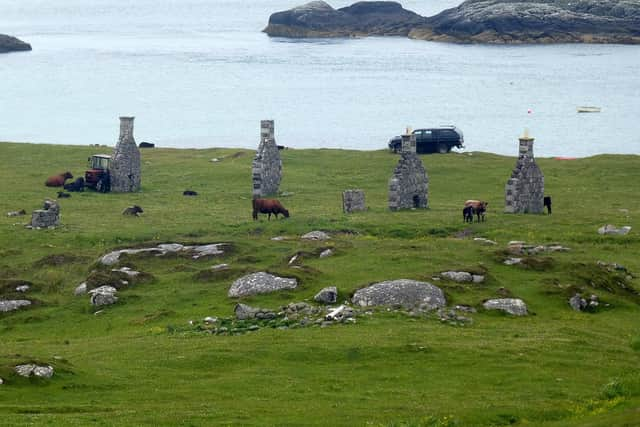The decade when Scotland lost half its Gaelic speaking people
Figures published in the newly digitised 1921 Census show the number of Gaelic-only speakers in Scotland fell by 46 per cent over the decade, with World War One cited as a key driver in the unprecedented loss of mongolot Gaelic speakers at the time.
Professor Michelle MacLeod, a Gaelic language and culture scholar at Aberdeen University, said there was no other period when the decrease in Gaelic-only speakers had been so high.
Advertisement
Hide AdAdvertisement
Hide AdProfessor MacLeod said: "Gaelic speakers became increasingly the exception from that point forward with bilingualism replacing monolingualism as the norm for Gaelic speakers.”
By 1921, there were 9,829 people listed as Gaelic-only speakers– down from 18,400 in the previous census, a drop of just over 46%. The highest rates of Gaelic-only speakers were found in children aged between three and nine and adults aged between 70 and 74
Meanwhile, speakers of both Gaelic and English fell by 19 % in the same period to 148,950.
Prof MacLeod said World War One had a “huge impact” on the vitality of the Gaelic language.
“It is generally believed that Highland and Islanders suffered disproportionate losses during World War One – especially in terms of losses at sea and of the Highland infantry,” she added.


Historian Malcolm MacDonald has suggested that 1,797 men from the Western Isles died during World War One out of a total population of 46,700.
Prof MacLeod added that the Iolaire tragedy on New Year’s Day 1919, when more than 200 returning servicemen drowned when their ship struck rocks just metres from the port at Stornoway, was “one more blow to the Gaelic speaking villages of Lewis and Harris.”
She added: “One of the worst maritime losses in UK waters and a huge tragedy with no villages on the island left unaffected, it was an additional loss on top of the war, on top of economic difficulty and patterns of migration which weakened the vitality of the language.”
Advertisement
Hide AdAdvertisement
Hide Ad“Emigration and population changes certainly played a bit part in destabilising the Gaelic language communities. For example, ships such as the Metagama which left Lewis in 1923 with 300 young people or the SS Marloch, which left Lochboisdale and Castlebay with similar passenger numbers - would have been filled with Gaelic speakers.”
Prof MacLeod said several social factors at the start of the 20th century impacted both on Gaelic speaking and Gaelic cultural identity. While some had a weakening force, others had a strengthening effect.
She added: “Certainly depopulation of heartland areas with people emigrating both to the new world and also to industrial Scotland contributed to the weakening of the language.
"However, the Land agitation movement of the late 19th century and the ‘birth’ of the crofting community also strengthened the sense of Gaelic identity. This sense of belonging to the land is very strong in poetry and song of that era and attachment to language and pride in the language and culture is very apparent.”
Overall, Gaelic speakers – including those who also spoke English – accounted for 3.4% of the population in 1921. The latest available census figure from 2011 shows that 57,375 people in Scotland speak Gaelic – around 1.1 per cent of the population.
Comments
Want to join the conversation? Please or to comment on this article.